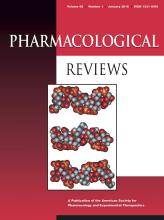Abstract
Antibody drug conjugates (ADCs) constitute a family of cancer therapeutics designed to preferentially direct a cytotoxic drug to cells expressing a cell-surface antigen recognized by an antibody. The antibody and drug are linked through chemistries that enable release of the cytotoxic drug or drug adduct upon internalization and digestion of the ADC by the cell. Over 40 distinct ADCs, targeting an array of antigens and utilizing a variety of drugs and linkers, are undergoing clinical evaluation. This review primarily covers ADCs that have advanced to clinical investigation with a particular emphasis on how the individual targets, linker chemistries, and appended drugs influence their behavior.
- Copyright © 2015 by The American Society for Pharmacology and Experimental Therapeutics
PharmRev articles become freely available 12 months after publication, and remain freely available for 5 years.Non-open access articles that fall outside this five year window are available only to institutional subscribers and current ASPET members, or through the article purchase feature at the bottom of the page.
|
Log in using your username and password
Purchase access
You may purchase access to this article. This will require you to create an account if you don't already have one.






